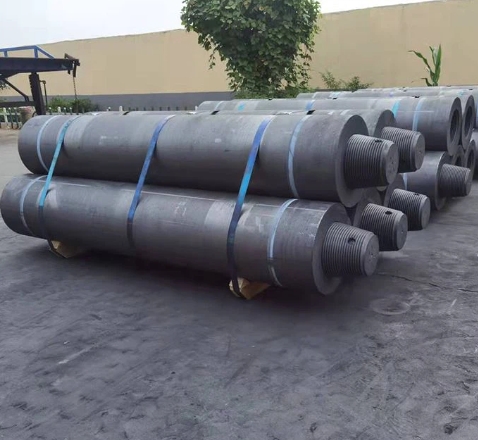
Graphite Electrode applications are used in steel mills, metal smelters and other industrial processes to provide conductivity, heat resistance and mechanical strength. This type of electrode has a bright future as technology advances and carbon-based material researchers continue to research.
Steel industry's demand for high-performance electrodes is driven primarily by their use in Electric Arc Furnaces. The electrodes are used in this process due to their high electrical conductivity. Graphite Electrode can also be used for other steel refining or smelting processes. It is also used to produce aluminum via electrolytic cell, where it acts as the cathode, which carries current, in order to separate aluminum and alumina.
These industrial electrodes are manufactured from carbon and coated with a binding agent, which is typically petroleum pitch or needle coal. The choice of binder can affect the density as well as the conductivity. Petroleum coke may be an affordable option, but is not ideal for applications that require high performance.

Needlecoke is an alternative with superior thermal characteristics and the ability to maintain high temperatures indefinitely. The addition a silicon-based additive can further enhance the performance graphite electrodes, particularly for arc welding.
Graphite electrodes are commonly used as a grounding system, especially in environments with corrosive and explosive chemicals. The electrode can either be used as a grounding system that is installed separately or integrated into existing systems in order to reduce equipment failures due to voltage fluctuations.
Graphite Electrodes are also used in machine tool applications to provide smooth, consistent and precise cutting characteristics at high speeds. These electrodes feature a low coefficients of expansion, and are able to withstand vibrations as well as temperature changes which could otherwise cause damage or even breakage.
Graphite is the ideal material for EDM because of its unique combination properties. These electrodes are able to cut through tough materials, including abrasive and hard workpieces, without damaging them. They are an excellent solution for difficult applications.
Graphite electrodes are made by different companies, but they all contain the exact same ingredients. The ratio of binder to carbon is precisely controlled during manufacturing in order for it to provide the best possible performance. Moreover, the addition of additives such as silicon and iron enhances the oxidation and corrosion resistance of the graphite and increases its mechanical strength. Additionally, it is crucial to understand how environmental and technological trends could affect the future of these electrodes.

Write a Message